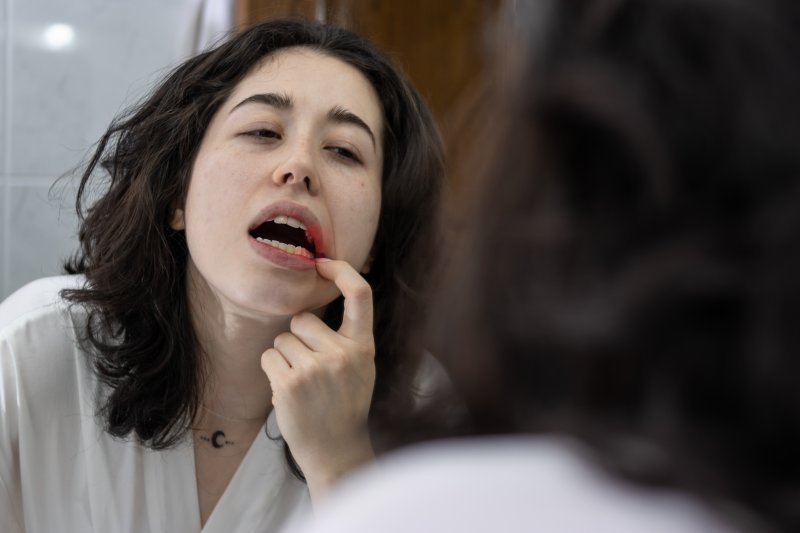
Gingivitis—a funny word with some serious implications for your oral health. It’s the early stage of gum disease, and if left unchecked, it can lead to more severe dental problems. According to the US Centers for Disease Control and Prevention, nearly 47 percent of adults over 30 have some form of gum disease. And the worst part? There’s evidence that it’s contagious! If you want to learn more about this phenomenon and how you can protect yourself, continue reading.
How Can You Tell If You Have Gingivitis?
Gingivitis is the inflammation of the gums, usually caused by a buildup of plaque—a sticky film of bacteria that forms on your teeth. The main symptoms of gingivitis include red, swollen gums that bleed easily when you brush or floss. It’s a warning sign that your oral hygiene routine might need a little extra attention. However, it’s the mildest form of gum disease, and it’s reversible!
Is Gingivitis Contagious?
So, can gingivitis really be passed from one person to another? The science says, “sort of.” Gingivitis itself isn’t contagious in the way a cold or the flu is. However, the bacteria that cause gum disease can be transferred from one person to another through saliva. This means that kissing, sharing utensils, or even drinking from the same glass as someone with the condition can potentially spread the bacteria.
But don’t break out the hazmat suit just yet. While the bacteria can be shared, it doesn’t mean you’ll automatically develop gingivitis. Your oral hygiene habits play a huge role in whether the bacteria will cause problems. If you brush, floss, and get professional cleanings regularly, you’re much less likely to develop gingivitis, even if you’re exposed!
Tips to Prevent Gingivitis
The best way to protect yourself and those around you from gum disease is to keep it from forming in the first place. Here are some simple ways to keep gingivitis at bay for a happier, healthier mouth:
- Practice Good Oral Hygiene: Brush your teeth twice a day and floss daily to remove plaque and prevent the buildup of harmful bacteria.
- Regular Dental Checkups: Visit your dentist regularly for cleanings and checkups. They can spot early signs of gingivitis and help you keep your gums healthy.
- Be Mindful of Saliva Sharing: Being aware of where your saliva is going, especially when sharing a space with someone else, can reduce the risk of spreading bacteria.
- Healthy Lifestyle Choices: Eating a balanced diet, not smoking, and managing stress can all contribute to better gum health and lower your risk of gingivitis.
If you’re worried that you might have gingivitis or that you could be spreading it, don’t hesitate to talk to your dentist. They’re here to help! Schedule a consultation as soon as you can to get the tools and advice you need to keep your gums healthy and your smile bright!
About the Author
If you need help with gingivitis in Parker, Dr. Rodney L. Allen is an award-winning dentist with a doctorate from the Baylor College of Dentistry. For over 20 years, he’s provided quality care for his patients while expanding his skills through programs like Spear Education. Call (720) 851-6784 to schedule a consultation at Rodney L. Allen, DDS or visit our website to explore all the services we offer.

